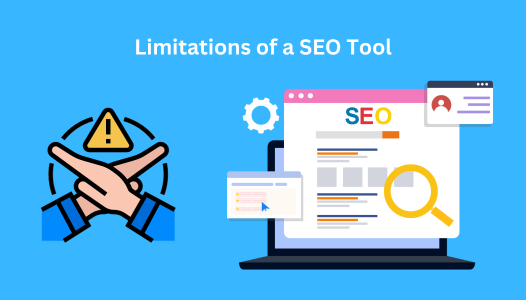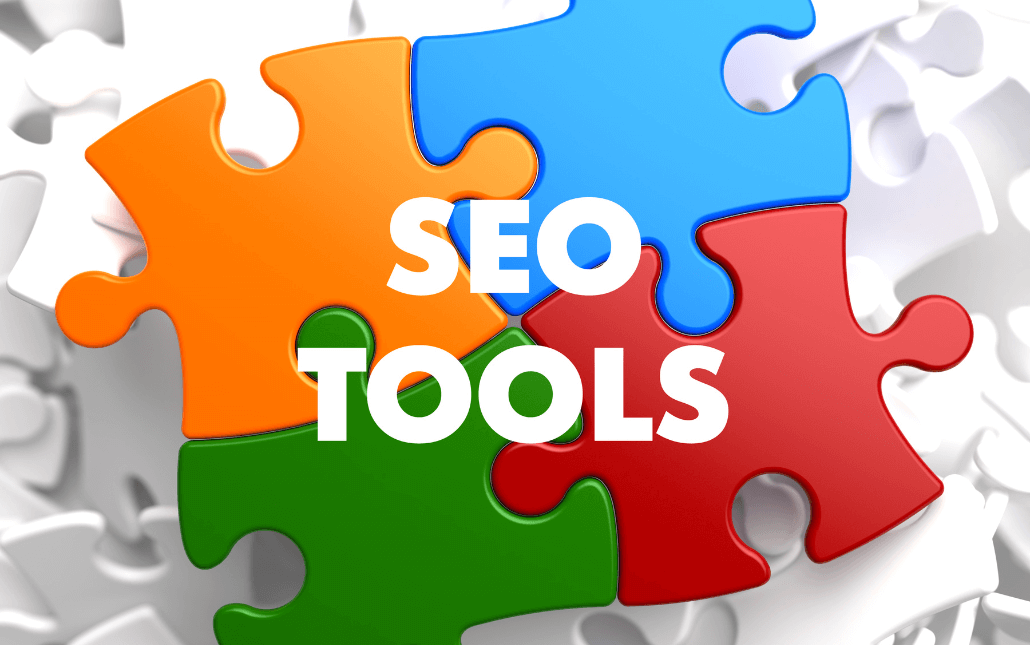Table of Contents
It’s true that SEO (Search Engine Optimization) tools are like superheroes for marketers and website owners. They promise to show us where we’re missing out, like finding the right keywords and checking our website traffic. But, there’s a catch – these tools may not offer 100% accuracy everytime. Should You Rely on SEO Tools for Creating Content?
It’s a common story: you hear SEO is important, try some tools, but end up confused and frustrated. This article is here to break down these tools – how accurate they are, what they can’t do, smart ways to use them, and more.
How Accurate the SEO Tools Are?
SEO tools vary in terms of accuracy, and their effectiveness often depends on various factors, including the specific tool, the algorithms it uses, and the data it has access to. It’s important to note that while SEO tools can provide valuable insights, they are not infallible, and human judgment and interpretation are crucial.
Here are some quotes from industry experts about the accuracy of SEO tools:
1. Rand Fishkin, Co-founder of Moz
“No tool is perfect. They’re all going to have inaccuracies. The goal is to make sure that your data is directionally accurate, that it’s helping you make good decisions about your SEO strategy.”
2. Brian Dean, Founder of Backlinko
“SEO tools are helpful for getting a sense of what might be going on with a website. But they’re just one piece of the puzzle. At the end of the day, you still need a human to analyze the data and make decisions based on it.”
3. Aleyda Solis, International SEO Consultant
“SEO tools are incredibly useful, but they are not a silver bullet. They can help you identify issues and opportunities, but they can’t replace the need for a human to understand the context and make strategic decisions.”
4. John Mueller, Webmaster Trends Analyst at Google
“Remember that SEO tools are external to Google and are not affiliated with us. While they can provide useful insights, it’s always a good idea to verify their data and use your own judgment in interpreting the results.”
5. Neil Patel, Digital Marketing Expert
“SEO tools are great for automating tasks and saving time, but they’re not a substitute for critical thinking. Always question the data, and use tools as a supplement to your own analysis and expertise.”
Also read: What is a Digital Marketing Roadmap and How to Create It?
What Can an SEO Tool Do?
Search Engine Optimization tools are used to improve a website’s visibility on search engines like Google. The primary goal of SEO is to enhance a website’s rankings in search engine results pages (SERPs) for relevant keywords. SEO tools help website owners, marketers, and SEO professionals optimize their online content and overall website structure to achieve better search engine rankings.

Here are some reasons why SEO tools are crucial:
1. Keyword Research
Tools like Google Keyword Planner, SEMrush, or Ahrefs help identify relevant keywords for a specific niche. By targeting the right keywords, website owners can attract their target audience and improve their chances of ranking higher in search results.
2. On-Page Optimization
SEO tools like Yoast SEO or Moz offer insights and suggestions for optimizing on-page elements such as title tags, meta descriptions, headers, and content. These optimizations help search engines understand the content better, leading to improved rankings.
3. Technical SEO Audits
Tools like Screaming Frog or Siteimprove can crawl websites to identify technical issues such as broken links, duplicate content, or site speed problems. Addressing these issues improves a site’s overall health and enhances its search engine performance.
4. Backlink Analysis
Ahrefs, Majestic, and Moz provide information about a website’s backlink profile. Understanding the quality and quantity of backlinks is crucial for SEO. High-quality backlinks from authoritative websites can positively impact a site’s search engine rankings.
5. Competitor Analysis
Tools like SEMrush or SpyFu allow users to analyze competitors’ websites, identify their strategies, and discover opportunities to improve their own SEO efforts. This competitive intelligence helps in staying ahead in the digital landscape.
6. Rank Tracking
SERP tracking tools like AccuRanker or Rank Tracker help monitor keyword rankings over time. This data is essential for evaluating the effectiveness of SEO strategies and making necessary adjustments.
7. Content Optimization
Tools like Clearscope or Surfer SEO analyze content and suggest improvements to align with search engine algorithms. This ensures that content is not only user-friendly but also optimized for search engine visibility.
8. Local SEO
Local SEO tools like Moz Local or BrightLocal help businesses optimize their online presence for local searches. This is crucial for businesses with physical locations, ensuring they appear in local search results and on platforms like Google My Business.
Also read: Choosing Focus Keywords for Blogs
What Can’t an SEO Tool Do?
While SEO tools are incredibly valuable for optimizing websites and improving search engine rankings, there are certain tasks and aspects of SEO that they may not address. Here are some things that SEO tools typically do not do:

Here’re some of the limitations that stop us to fully rely on SEO tools for content creation:
1. Create Content
SEO tools can analyze existing content and suggest improvements, but they don’t generate new, high-quality content on their own. Content creation requires human creativity, expertise, and understanding of the target audience.
2. Provide a One-Size-Fits-All Solution
SEO tools may offer general recommendations, but every website is unique. Tailoring strategies to a specific audience, industry, or business requires a nuanced understanding that SEO tools may not fully capture.
3. Guarantee Immediate Results
While SEO tools can help improve a website’s SEO over time, they cannot guarantee instant results. SEO is a long-term strategy, and factors like search engine algorithms and competition can impact the speed of progress.
4. Understand User Intent and Behavior Fully
While tools can provide keyword insights, they may not fully understand the nuances of user intent and behavior. Creating content that truly resonates with the audience requires human understanding and empathy.
5. Replace Human Expertise
SEO tools are powerful aids, but they can’t replace the expertise and strategic thinking of SEO professionals. Interpretation of data, adapting to changes, and making informed decisions often require human input.
6. Implement Changes Automatically
SEO tools provide recommendations, but they typically don’t make changes to a website automatically. Users need to manually implement suggested optimizations, ensuring they align with the overall strategy.
7. Keep Up With Rapid Algorithm Changes
Search engine algorithms evolve, and SEO tools may not always provide real-time updates. SEO professionals need to stay informed about industry trends and algorithm changes to adapt their strategies accordingly.
8. Replace Quality Link Building Strategies
While tools can analyze existing backlinks, they may not substitute for a well-planned and executed link-building strategy. Building high-quality, authoritative backlinks often requires human outreach and relationship-building efforts.
Also read: Help Me Write
What Should Be the Best Way to Create Content Then?
Let’s get real about content creation— it’s an art, not just a science. While search engine optimization tools play a crucial role in the game, they’re not the creative genius behind those engaging, share-worthy pieces.
So, how do you create content that’s not just search engine-friendly but also human-approved? Here’s your guide to infusing that much-needed human touch into your content creation process:
1. Understand Your Audience
| Human Touch | SEO tools might identify keywords, but understanding your audience’s preferences, interests, and pain points requires a human touch. |
| Create Personas | Develop detailed buyer personas to tailor your content to the specific needs and behaviors of your target audience. |
2. Keyword Integration with Context
| Natural Language Processing | SEO tools excel at keyword analysis, but it’s up to humans to integrate keywords seamlessly into content using natural language processing. |
| Contextual Relevance | Ensure keywords are used in context, providing valuable information and maintaining a natural flow within the content. |
3. Craft Compelling and Unique Content
| Storytelling | SEO tools can’t tell a story or evoke emotions. Craft compelling narratives that resonate with your audience, turning information into a captivating experience. |
| Originality Matters | Strive for originality in your content. While tools can flag duplicate content, human creativity ensures your content stands out from the crowd. |
4. Optimize for User Experience
| Visual Appeal | Consider the visual aspects of your content. SEO tools may not assess the visual appeal, but human users are drawn to well-designed, visually engaging content. |
| Mobile-Friendly Content | Optimize content for various devices, ensuring a seamless experience for users on smartphones, tablets, and desktops. |
5. Engage in Conversational Marketing
| Human Interaction | SEO tools can’t engage in conversations. Leverage conversational marketing techniques, responding to comments, and fostering community engagement. |
| Social Listening | Actively listen to your audience on social media. SEO tools might not capture the nuances of real-time conversations. |
6. Stay Updated with Industry Trends
| Human Curiosity | While SEO tools analyze historical data, it’s human curiosity that drives exploration of emerging trends. Stay informed about industry developments to create timely and relevant content. |
| Adaptability | Humans have the ability to adapt content strategies based on evolving trends, ensuring your content remains fresh and aligned with current industry perspectives. |
7. Incorporate Multimedia Elements
| Diverse Content Formats | SEO tools may not emphasize the importance of multimedia. Incorporate images, videos, infographics, and other multimedia elements to enhance user engagement. |
| Accessibility | Consider accessibility features for a diverse audience, making your content inclusive and accommodating to users with different needs. |
8. Align Content with Brand Voice and Values
| Brand Consistency | SEO tools don’t define your brand voice. Ensure consistency in tone, language, and messaging to reinforce your brand identity. |
| Ethical Considerations | Content creation involves ethical decisions. Human oversight is crucial to ensure content aligns with your brand’s values and ethical standards. |
Also read: How to Use SEO Metrics for Your Marketing Strategy in 2023?
Final Thought
In the ever-evolving landscape of SEO, we’ve explored the invaluable role of tools and the essential touch of human creativity. While SEO tools provide the roadmap, the soul of compelling content lies in understanding our audience, telling authentic stories, and staying attuned to industry shifts. It’s not about relying solely on algorithms; it’s about infusing our content with a human touch that resonates beyond search rankings.
So, let’s embrace the synergy of data-driven insights and genuine human connection. SEO tools are our allies, but it’s our ability to craft engaging narratives, stay ahead of trends, and authentically represent our brands that transforms content from a mere search result to a meaningful interaction. In the end, the art of SEO is a dance — a harmonious blend of technological guidance and human creativity that propels our content to heights unseen.





